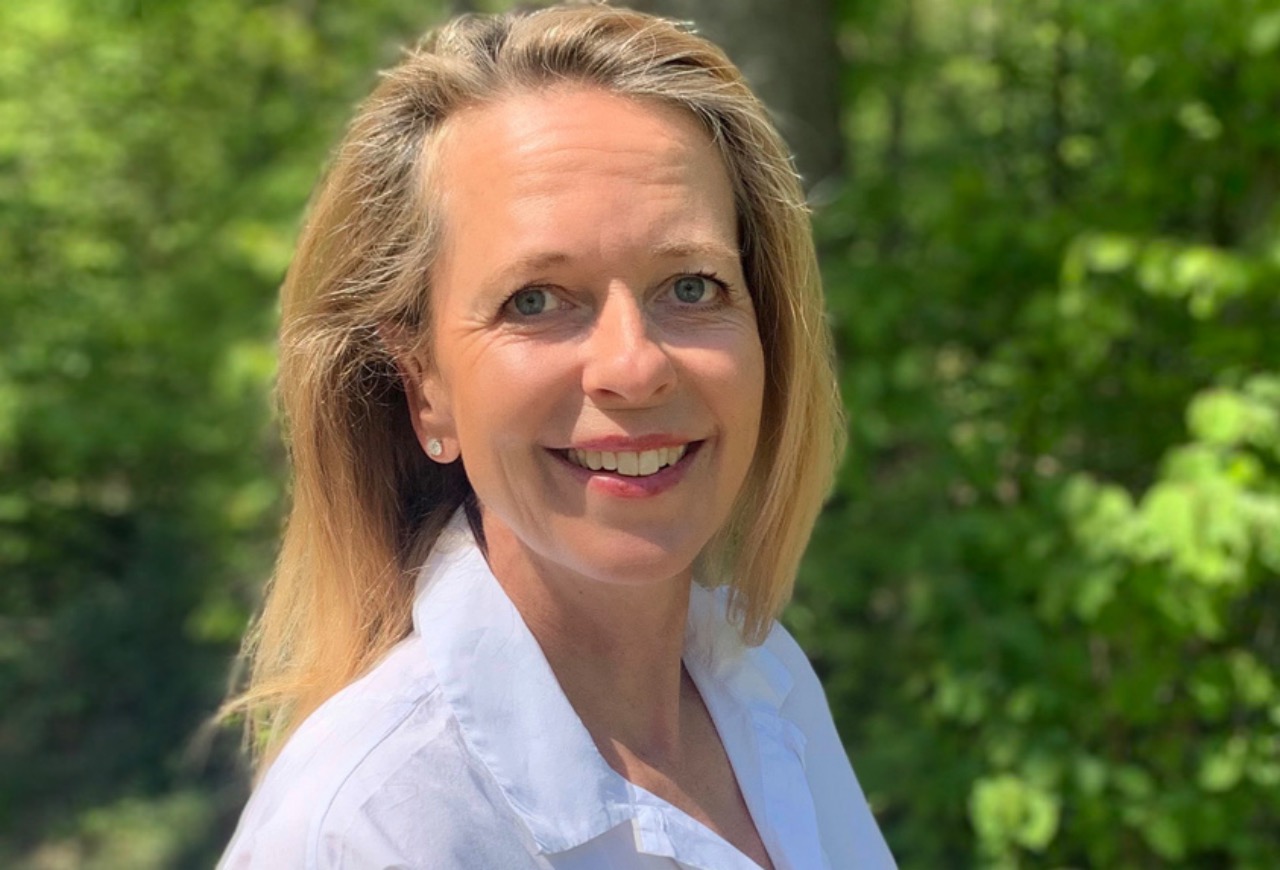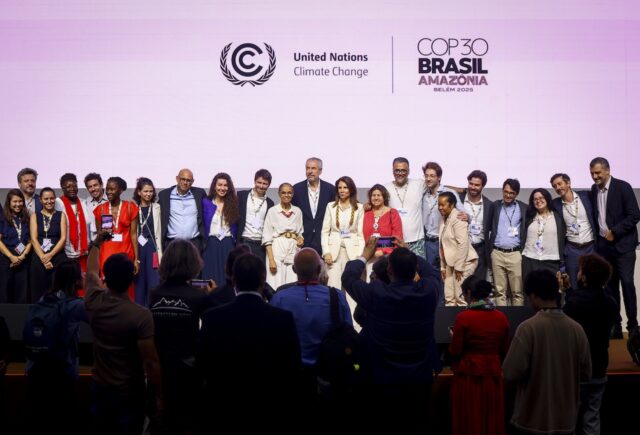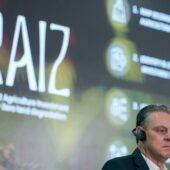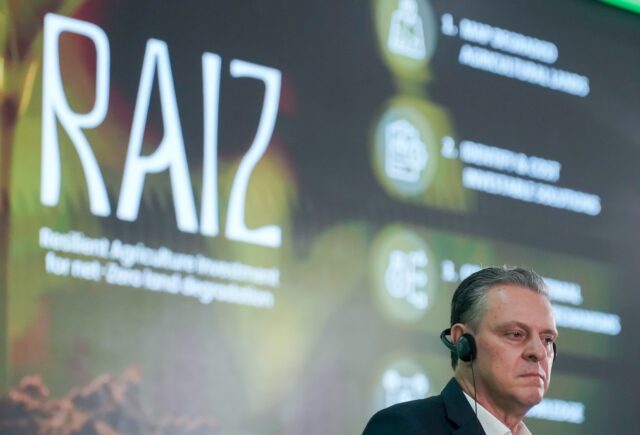Susanne Wittig, co-founder of Swiss venture incubator Brainforest, talks about the innovative approach the organisation is taking to identify and accelerate forest-based solutions addressing climate and biodiversity challenges

In brief
- Over 200 million hectares of reforestation are needed to stay below a 2°C temperature rise by 2030
- Although the investment potential of forest-based solutions is globally recognised, the process of identifying and investing in a project is too slow
- Swiss venture incubator Brainforest aims to incorporate and scale innovative forest-based solutions that address climate and biodiversity challenges
Adding 20 million hectares of additional forest globally by 2030 is the aim of Brainforest, a Swiss incubator of innovative forest-based climate solutions.
Launched in December 2019 by three co-founders, WWF Switzerland and angel investor Christian Wenger, with seed capital from the Migros Pioneer Fund, Brainforest aims to incorporate and scale innovative forest-based solutions that address the issues of climate and biodiversity loss, as well as improve livelihoods.

“These three aspects have to be inherent in the DNA of the new ventures,” says Susanne Wittig, one of the co-founders of Brainforest.
“When we incorporate a new business, we also want to ensure quality and impact rules are integrated into the new company’s by-laws. We expect all our companies to be B-Corp certified, and are currently preparing a rulebook outlining our quality and impact guidelines,” she adds.
Wittig previously co-founded the Swiss chapter of global network for social entrepreneurs Ashoka and launched impact consultancy Impact Relation.
Describing Brainforest, she says the venture is a collaborative effort, bringing together experts from a range of disciplines, in response to the multi-billion euro financing gap in biodiversity.
Closing the financing gap in forests
Wittig explains she was approached by Leo Caprez, who was working in corporate relations for WWF Switzerland and has since become one of the co-founders of Brainforest, as well as Christian Wenger, an angel investor who was passionate about forests and is the organisation’s chairman today.
“Leo was eager to work together on a nature-based solution to the climate crisis, and Christian Wenger had recently returned from a trip to a reforestation project in Australia with WWF, which had impressed him. Together, we decided that if carbon sequestration was going to be a crucial factor in reaching our climate goals, then forests would play a significant role in that,” she says.
Wittig adds that a study released in July 2019 by the ecologist Thomas Crowther, professor at the ETH Zurich university, also inspired their focus.
According to the World Economic Forum’s Investing in Forests report, the total value of intact forests and their ecosystem services is up to $150 trillion (€138 trillion), around double the value of global stock markets.
According to Wittig, although there is a global recognition of the investment potential of forest-based solutions, the time it takes for companies to move from pledge to identifying and investing in a project, was taking too long.
“We are seeing vast amounts of money being pledged but none of this is evident at the project level,” says Wittig, who explains that the process of identifying and investing into forests can take up to 18 months. “Knowing the speed and scale of the solutions we need to meet the climate crisis, this is much too slow,” she adds.
The ideas for the ventures incorporated by Brainforest are mostly “sourced, vetted and accelerated” from within the team, although Wittig says they have also been approached by external entrepreneurs with ideas.
“At a later stage, we hope to be able to invest in early-stage companies but that’s not the core of our business yet. Today, we want to identify and focus on the problems and try to understand how we can solve them working with the entrepreneurs in our network, and enable them with the expertise we have within the team.”
Putting the brain in forest
The company brings together advisors and experts in sustainable forest management, reforestation, climate and related fields, as well as in business. These include experts from NGOs, unicorn founders and serial entrepreneurs, academics and corporate leaders.
Notable names include Thomas Vellacott, CEO of WWF Switzerland, and Jaboury Ghazoul, chair of Ecosystem Management at ETH Zurich university, who both sit on the board. Climate scientist and Nobel laureate Carlos Nobre is also part of the company’s advisory board.
Jamie Lawrence, a forester and leading global expert in sustainable forest strategy, has also been part of the team at Brainforest since the start. Lawrence is also the co-founder of Xilva -The Global Forest Marketplace, one of the first two ventures that have been incorporated by the company.
Xilva’s aim is to make it easier and faster for investors to deploy money into forests by matching vetted forest-based projects with the needs of investors, auditing and rating the project developers and streamlining the transaction process.
“To ensure strong governance someone from Brainforest is always on the board of the ventures we incorporate, to ensure the strategy is constantly aligned with the impact purpose and there’s no mission drift,” says Wittig. “We are also involved in selecting and putting the teams together, which is one of our key USPs.”
The other incorporated venture is Ecosystem Value Association (EVA), a multi-stakeholder project involving the German government, forest owners and NGOs as well as Brainforest experts, working on creating a digital forest climate standard to generate carbon credits.
“There have been about 500,000 hectares of forest destroyed in Germany in the past four years as a result of heavy storms and drought. The EVA standard will generate digital carbon forest certificates, allowing German companies to participate in reforestation efforts and giving German forest owners access to the voluntary carbon market and to an additional source of revenue to finance those efforts,” explains Wittig.
The Brainforest team hopes to scale the standard to other markets in the future. “In Germany, there are lots of smallholders of forests and our vision is to be able to apply the same monitoring and MRV [measurement, reporting and verification] methods to small scale forest owners in the Global South,” she adds.
A unique business model
Brainforest operates as a non-profit tax-exempt association in the central Zug canton of Switzerland with a financial structure which according to Wittig is novel and shows the evolution of the philanthropic sector in Switzerland.
“We have a unique tax-exempt structure, which nevertheless allows us to raise philanthropic capital to build impact-first, for-profit ventures,” she says. “This gives us a lot more flexibility to combine different types of financing in order to innovate and find the scalable solutions we need. We hope to grow our portfolio and attract more impact investors as well as philanthropic capital over the next couple of years.”
Seeded by the Migros Pioneer Fund, the social development fund from Swiss retail giant the Migros Group, Brainforest has raised a total of CFH 2m in philanthropic capital and CHF 4.5m in investment capital.
Its hope is to attract a further CHF 10m in philanthropic capital and CHF 5m in impact investment commitments before the end of the year.
The company is currently looking at incorporating other ventures, including a project aimed at improving the wellbeing and livelihoods of local communities from standing forests, and an initiative focused on biodiversity measurement.
“We currently have three-to five ventures in mind that we are matching with entrepreneurs, and many more ideas in the pipeline,” says Wittig.
“Reforestation of 200m hectares is needed to stay below a 2°C temperature rise by 2030 and our ultimate goal is to contribute 10% of that. It’s ambitious, but we are well equipped and have the right model to achieve this.”






